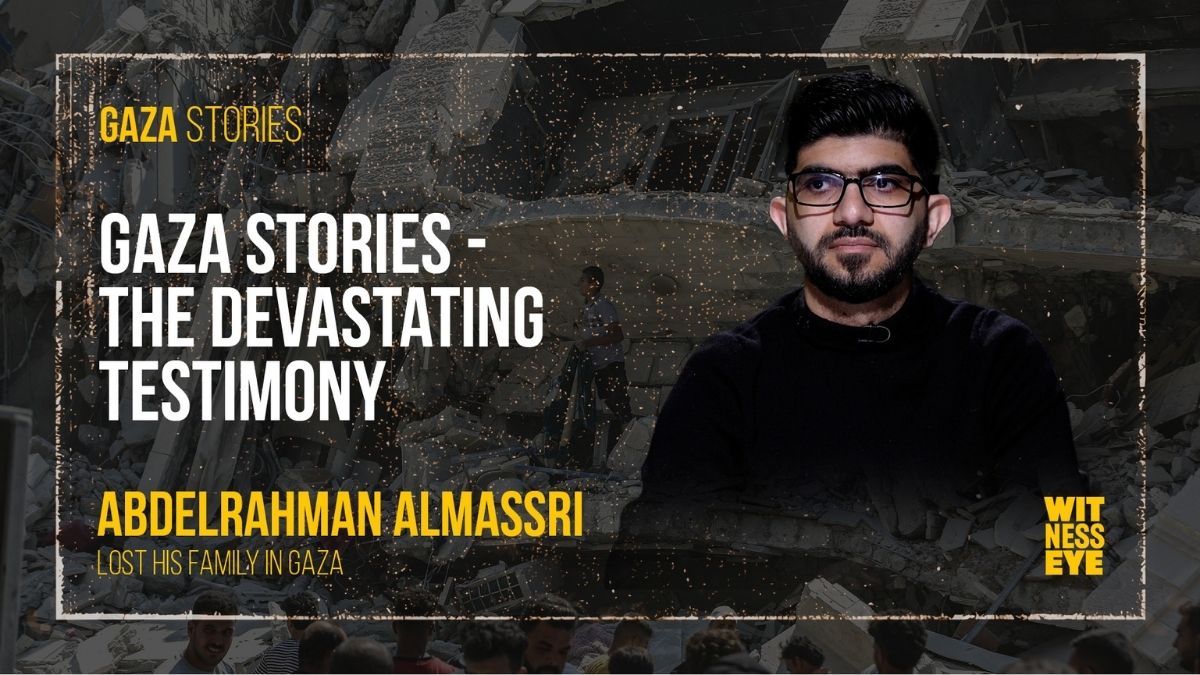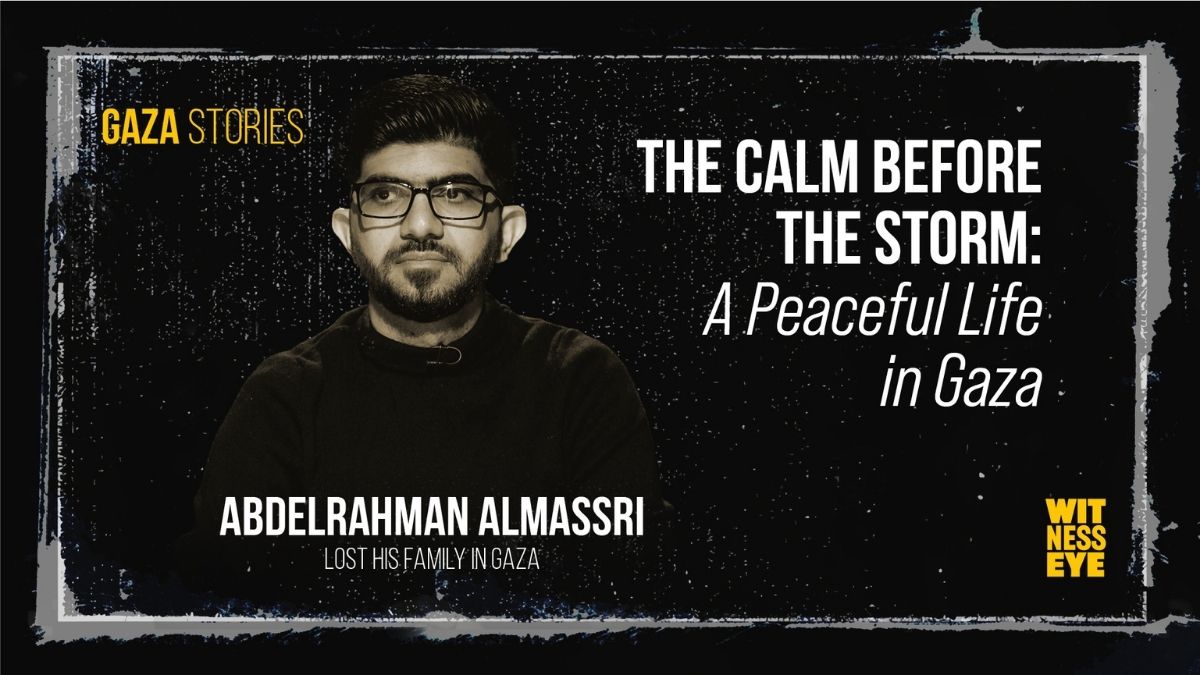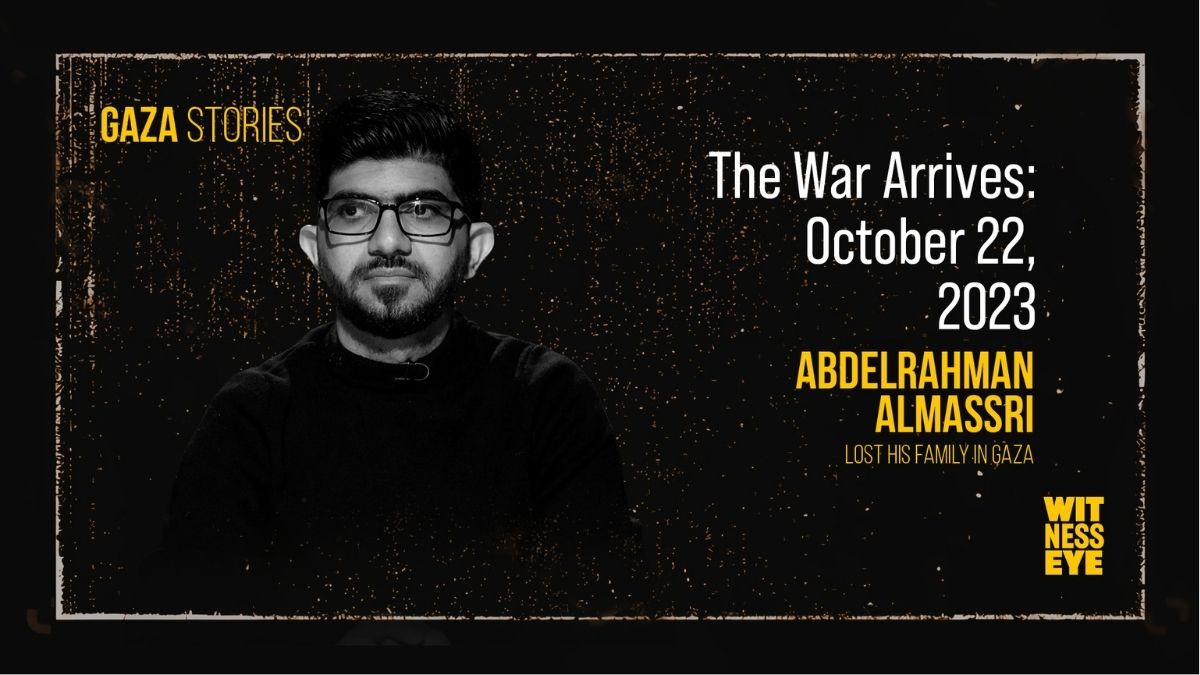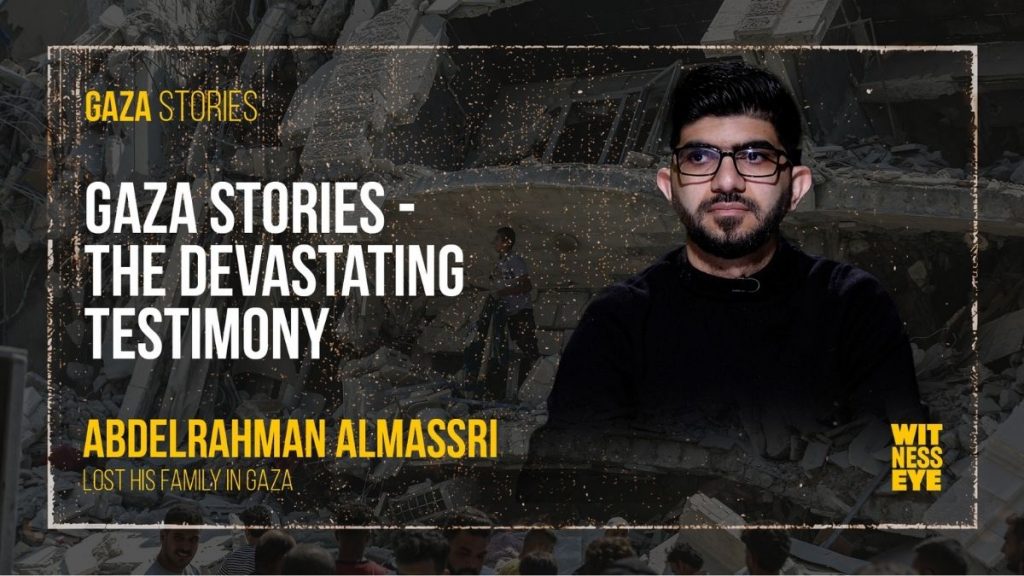
Gaza Stories are not merely tales—they are testimonies of immense loss, survival, and resilience. Abdel Rahman Al-Massri’s story is one such testament, offering a glimpse into the life of a man who survived the bombing of his home but tragically lost most of his family members. His survival came at a high price, with emotional and psychological scars that remain long after the bombs have stopped falling. This testimony, like many others, sheds light on the unimaginable pain of surviving a genocide, the ongoing fight to rebuild a life, and the relentless toll of war that doesn’t stop with the physical destruction. For those seeking to understand the full scale of the tragedy unfolding in Gaza, stories like Abdel Rahman’s provide a heart-wrenching, firsthand account of the horrors of this war.

The Calm Before the Storm: A Peaceful Life in Gaza
Before October 7, 2023, Abdel Rahman and his family led a life filled with hope and simple joys. As a university professor in Gaza, he had a fulfilling career, and his parents had worked tirelessly to build a future for their children. The family, consisting of six children, lived in Deir al-Balah, an area that the military had classified as “safe.” Little did they know, this “safe” zone would be shattered when war broke out, and everything they had known would be erased in the blink of an eye. Abdel Rahman’s older brother Ahmed, a teacher at a UNRWA school, and his sister Iman, an English teacher at the same school, were among the pillars of the family. Together, they had all built a life based on the values of hard work, education, and the dream of a better future. But the war, which escalated swiftly and without warning, left no one untouched.
Stories like these are not uncommon, as many families in Gaza share similar experiences. For more in-depth accounts of families caught in the crossfire, explore the Gaza Testimonies section, which documents the raw realities faced by those in Gaza.

The War Arrives: October 22, 2023
October 22, 2023, marked the day that would forever change Abdel Rahman’s life. Fifteen days after the war began, a missile strike tore through their home in Deir al-Balah. The area, once considered safe by the military, was no longer immune to the violence sweeping across Gaza. Abdel Rahman recalls the hours leading up to the bombing. The family had gathered briefly to talk about an earlier bombing in a neighboring house. Though shaken by the incident, they attempted to return to their daily routine. “We gathered, prayed together, and then went about our separate ways in the house,” he explains. Little did they know that their home would soon be reduced to rubble.
Just an hour before the bombing, Abdel Rahman’s young nephew was playfully moving furniture around the guest room. His mother, with her usual calm demeanor, remarked, “Let him play, let us just stay alive.” Tragically, that was the last moment of normalcy the family would experience.
For more stories of how families are torn apart during the ongoing conflict, check out the Stories of Survival section.
Surviving the Collapse: A Harrowing Escape from the Rubble
When the missile struck, Abdel Rahman was in his room. The blast shattered the window, and the force of the explosion sent everything around him tumbling down. In an instant, his home, his life, and his family were destroyed. Yet, against all odds, he survived. “The first thing I saw was the window compressing, all the glass flying outward,” he remembers.
“Then everything collapsed around me, and I was trapped under the debris.” Despite severe injuries, he remained conscious, and after what seemed like an eternity, he managed to free himself from the rubble.
His physical injuries were severe, and he was left unable to walk for some time. Yet the true battle was the mental and emotional toll—surviving a bombing only to realize that most of his family had perished.
You can read more about the destruction of civilian homes and the impact on families in Gaza through the Destruction of Civilian Infrastructure reports.

After the Bombing – Gaza Stories
“I was bleeding, but I wasn’t a priority,” he recalls. “There were others who were unconscious, and they were prioritized over me.” The lack of resources and the sheer number of casualties left Abdel Rahman in an alley, waiting for help that never came. It was here, in that cold, silent moment, that the true horror of the war began to sink in. Physical wounds could heal, but the emotional scars would last forever.
For further insight into the overwhelming medical crisis in Gaza and its impact on the survivors, you can explore Civilian Impact Reports which document the challenges faced by healthcare systems during the war.
The Pain of Loss and the Struggle to Keep Going
Even after surviving the bombing, Abdel Rahman was forced to reckon with the devastating loss of his family. The trauma of losing his parents, his siblings, and his young nephew and niece was indescribable. “Gaza is not just a place for us,” he says. “It’s where we lose everything—our families, our homes, our memories.” This war, for Abdel Rahman and many like him, has not only taken their loved ones but also their sense of self. The psychological scars of war run deep, and while the world moves on, the survivors remain trapped in their memories.
To understand more about the lasting emotional effects of the war, visit the Gaza War section, which explores the ongoing psychological impact on survivors.

Gaza Stories – Looking for Support:
Despite being a survivor, Abdel Rahman faces an ongoing struggle: the lack of support from the international community. After the bombing, no one reached out to offer help—neither legal nor humanitarian. He recalls how, even in his time of need, no one checked on him or his condition. “We survived, but there’s no one to help us rebuild,” he says. “Even human rights organizations rarely contact us.” The need for international justice and accountability is clear. Survivors like Abdel Rahman are left to face the aftermath of a genocide without the support they need. Legal and medical help is scarce, and the trauma continues to affect them every day.
Now, hear the testimony of Ahmed Al-Masri in his own words—a teacher, martyr, symbol of Gaza’s resilience—carrying Gaza’s grief, memory, and unyielding call for justice into the record of history.
For those who want to understand the need for international accountability and the urgent call for justice in Gaza, the Gaza Tribunal provides essential information.
Abdel Rahman’s testimony is one among many that speak to the ongoing horrors in Gaza. The stories of survival, loss, and resilience need to be shared with the world. The international community must listen, understand, and act. The lives of the survivors and the memory of the victims depend on it.
For further updates on Gaza and to learn more about the ongoing situation, you can visit Witness Eye.
